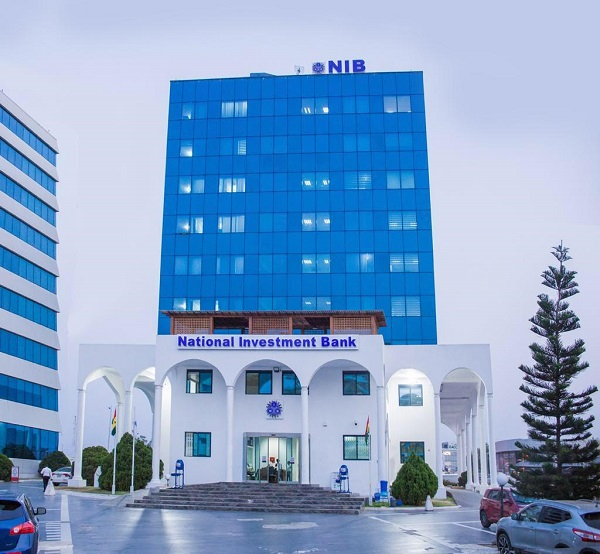The government’s decision to recapitalise the National Investment Bank (NIB) with GH¢3.4 billion, announced in the 2025 Mid-Year Budget, is a significant step towards restoring the bank’s financial health and placing it as a vital backer of enterprises and economic progress.
This recapitalisation, together with a comprehensive restructuring strategy, represents a significant chance to convert NIB into a long-term, profitable, and effective financial institution.
As a business coach, I see this as a crucial opportunity for NIB to reposition itself as a cornerstone of Ghana’s financial ecosystem, particularly in terms of assisting SMEs. In this article, I will explore how NIB’s recapitalisation can empower Ghanaian businesses and outline practical strategies to ensure the sustainability of this recapitalisation.
How NIB’s recapitalisation can help businesses
Restoration of financial stability and confidence
The GH¢3.4 billion infusion, which included GH¢450 million in cash, GH¢1.5 billion in bonds, and GH¢500 millions of Nestlé Ghana shares, raised NIB’s Capital Adequacy Ratio from a startlingly low 53.13% in 2024 to a robust positive 23% by May 2025.
The public and corporate confidence in the bank’s ability to fulfil its responsibilities has been restored as a result of this turnaround, which indicates financial stability and makes the bank a safer choice for both depositors and borrowers.
Preservation of depositor funds and jobs
The recapitalisation saved GH¢6.4 billion in depositor monies and protected over 900 direct employments at NIB. Maintaining job security and protecting depositors’ savings is critical for economic stability and faith in the financial system.
Increased lending capacity for businesses
A well-capitalised bank can expand its lending capacity, especially targeting industrial development and the manufacturing sector, as NIB’s renewed strategic focus suggests. This is critical for businesses needing access to affordable credit to expand operations, invest in innovation, and create jobs.
Indigenous bank with a national development mandate
As an indigenous financial institution, NIB’s rebirth promotes national interests by directing resources to areas that may be ignored by commercial banks, such as small and medium-sized companies (SMEs) and industries critical to economic transition.
Practical steps to ensure sustainable recapitalisation
Strengthen corporate governance
The restructuring plan’s emphasis on improving board independence and accountability is crucial. The NIB must form a board with varied competence in banking, risk management, and business strategy, free of political involvement.
Regular board evaluations and transparent appointment methods will increase public trust. Furthermore, the bank should create a strong code of ethics to prevent insider lending and conflicts of interest, which have led to its previous financial problems.
Improve risk management frameworks
A bank’s long-term viability depends on effective risk management. NIB should invest in advanced risk assessment tools to evaluate loan applications and track portfolio performance. This involves using data-driven credit rating models to identify creditworthy borrowers and reduce non-performing loans (NPLs), which have previously plagued the bank. Regular stress testing and scenario research might help the NIB anticipate economic shocks like currency devaluation or inflation increases.
Diversify revenue streams
To lessen dependency on interest income, the NIB should diversify its revenue streams. This could entail offering more fee-based services to high-net-worth clients, such as trade financing, foreign exchange, and wealth management. For example, NIB might provide letters of credit to enterprises involved in foreign trade, making fees while promoting export growth. Furthermore, the bank’s decision to float on the Ghana Stock Exchange is a strategic step to increase capital and transparency.
Invest in human capital
A trained and motivated personnel is critical to NIB’s long-term success. The bank should spend in ongoing training for its employees in areas such as digital banking, risk management, and customer service. For example, NIB might collaborate with institutes such as the Chartered Institute of Bankers to provide employee certification programs. In addition, performance-based rewards and an accountability culture will enhance employee morale and productivity.
Engage stakeholders and build trust
Transparency and stakeholder engagement are critical to maintaining public trust in NIB. The bank should issue regular financial reports and hold stakeholder forums to highlight its progress and issues. For example, NIB might organise quarterly town hall meetings with depositors, businesses, and regulators to review its performance and solicit comments.
Conclusion
The recapitalisation of NIB with GH¢3.4 billion and the associated restructuring plan represent a turning point for Ghana’s financial system. The NIB can help firms generate economic growth by boosting lending access, supporting important industries, and modernising operations. However, sustainability requires strong governance, good risk management, and stakeholder involvement.
As a business coach, I advise entrepreneurs and organisations to take advantage of this chance to collaborate with a revitalised NIB, while the bank must remain committed to transparency and innovation to sustain its newfound stability.
